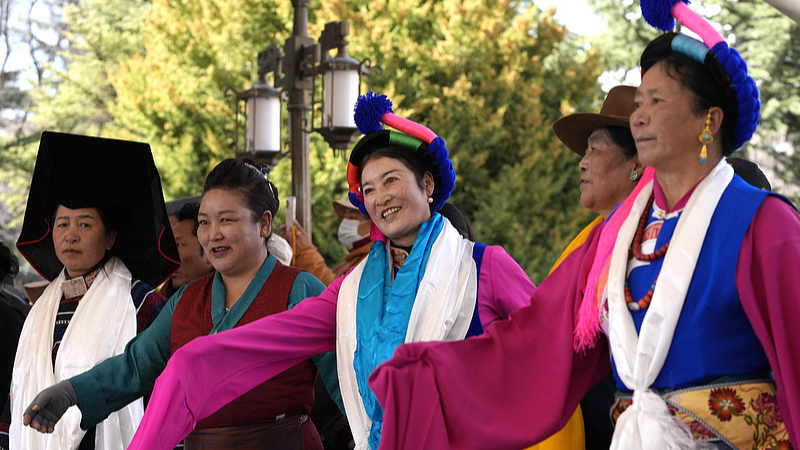A new white paper titled "Human Rights in Xizang in the New Era," released by China's State Council Information Office, paints a vibrant picture of religious freedom and cultural preservation in the Xizang Autonomous Region.
The document details effective measures that protect lawful religious activities. It highlights that approximately 46,000 Buddhist monks and nuns, 12,000 native Muslims, and over 700 Catholic believers practice their faith with strong local support.
Ordinary believers often maintain scripture rooms or Buddhist shrines at home, while Tibetan Buddhist monasteries remain centers for learning, debate, and traditional rituals including initiation ceremonies and self-cultivation. Regular scriptural examinations and academic promotions further emphasize the commitment to spiritual education.
Cultural festivities such as the Shoton Festival, Butter Lamp Festival, and Saga Dawa Festival, along with religious walks around local lakes and mountains, continue to enrich community life in Xizang.
The white paper also underscores the practical support provided by both central and regional authorities. Today, over 98 percent of monasteries and temples enjoy modern infrastructure including roads, telecommunications, electricity, water, radio, and television. Additionally, more than 26 million yuan is allocated annually to cover benefits like medical insurance, pension schemes, and health check expenses for registered monks and nuns.
Furthermore, significant investments have led to the establishment of nine Tibetan Buddhism colleges, including the High-level Tibetan Buddhism College of China and the Xizang Tibetan Buddhist Institute, with an overall investment of 920 million yuan. These developments reinforce educational advancement alongside cultural preservation.
This comprehensive white paper offers a compelling narrative of how tradition and modernity converge in Xizang, ensuring that the region's spiritual and cultural practices are actively supported and cherished, resonating with a globally connected and diverse audience.
Reference(s):
Freedom of religious belief safeguarded in Xizang: white paper
cgtn.com




